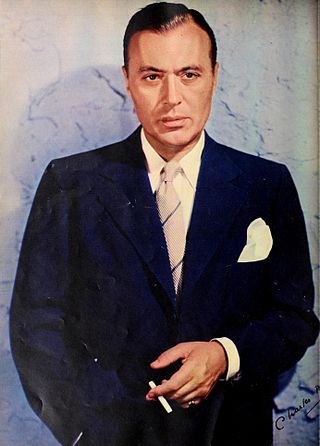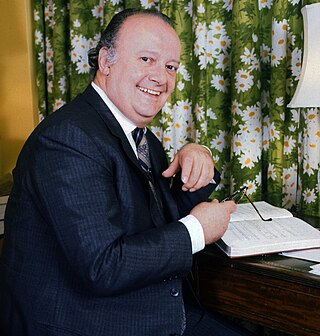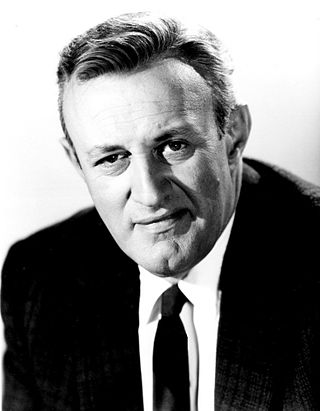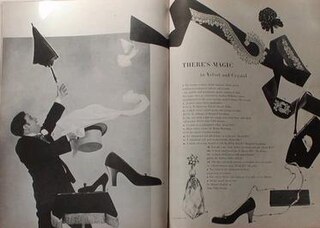Related Research Articles

Vittorio De Sica was an Italian film director and actor, a leading figure in the neorealist movement.

Charles Boyer was a French-American actor who appeared in more than 80 films between 1920 and 1976. After receiving an education in drama, Boyer started on the stage, but he found his success in American films during the 1930s. His memorable performances were among the era's most highly praised, in romantic dramas such as The Garden of Allah (1936), Algiers (1938), and Love Affair (1939), as well as the mystery-thriller Gaslight (1944). He received four Oscar nominations for Best Actor. He also appeared as himself on the CBS sitcom I Love Lucy.

José Vicente Ferrer de Otero y Cintrón was a Puerto Rican actor and director of stage, film and television. He was one of the most celebrated and esteemed Hispanic American actors—or, indeed, actors of any ethnicity—during his lifetime and after, with a career spanning nearly 60 years between 1935 and 1992. He achieved prominence for his portrayal of Cyrano de Bergerac in the play of the same name, which earned him the inaugural Tony Award for Best Actor in a Play in 1947. He reprised the role in a 1950 film version and won an Academy Award for Best Actor, making him the first Hispanic actor and the first Puerto Rican-born to win an Academy Award.

Tito Gobbi was an Italian operatic baritone with an international reputation.

Lee J. Cobb was an American actor, known both for film roles and his work on the Broadway stage, as well as for his television role in the series, The Virginian. He often played arrogant, intimidating and abrasive characters, but he also acted as respectable figures such as judges and police officers. Cobb originated the role of Willy Loman in Arthur Miller's 1949 play Death of a Salesman under the direction of Elia Kazan, and was twice nominated for the Academy Award for Best Supporting Actor, for On the Waterfront (1954) and The Brothers Karamazov (1958).

Maurice Herbert Evans was an English actor, noted for his interpretations of Shakespearean characters. His best-known screen roles include Dr. Zaius in the 1968 film Planet of the Apes and Samantha Stephens's father, Maurice, on Bewitched.

Richard Allen Boone was an American actor who starred in over 50 films and was notable for his roles in Westerns, including his starring role in the television series Have Gun – Will Travel.

Reginald Tate was an English actor, veteran of many roles on stage, in films and on television. He is remembered best as the first actor to play the television science-fiction character Professor Bernard Quatermass, in the 1953 BBC Television serial The Quatermass Experiment.

The United States Steel Hour is an anthology series which brought hour-long dramas to television from 1953 to 1963. The television series and the radio program that preceded it were both sponsored by the United States Steel Corporation.

Robert Rietti, OMRI, was an English actor, translator, playwright, and dubbing director. With over 200 credits to his name, he had a highly prolific career in the British, American, and Italian entertainment industries. He was particularly prominent in post-production dubbing both foreign and domestic, often overseeing the English-language dubbing of foreign actors' dialogue. He is known for his dubbing work in the James Bond film series, Lawrence of Arabia, Once Upon a Time in America, and The Guns of Navarone.

Ralph Meeker was an American film, stage, and television actor. He first rose to prominence for his roles in the Broadway productions of Mister Roberts (1948–1951) and Picnic (1953), the former of which earned him a Theatre World Award for his performance. In film, Meeker is perhaps best known for his portrayal of Mike Hammer in Robert Aldrich's 1955 Kiss Me Deadly.
Luther Berryhill Davis was an American playwright and screenwriter.
Sumner Locke Elliott was an Australian novelist and playwright.

Martin Ellyot Manulis was an American television, film, and theatre producer. Manulis was best known for his work in the 1950s producing the CBS Television programs Suspense, Studio One Summer Theatre, Climax!, The Best of Broadway and Playhouse 90. He was the sole producer of the award-winning drama series, Playhouse 90, during its first two seasons from 1956 to 1958.

Renato Ranucci, known by the stage name Renato Rascel, was an Italian film actor and singer. He appeared in 50 films between 1942 and 1972. He represented Italy in the Eurovision Song Contest 1960 with the song "Romantica", which tied for eighth place out of thirteen entries.

Andrew McKinley was an American operatic tenor, violinist, arts administrator, music educator, and school administrator. Although he mainly performed in the United States, he had an active international singing career with major opera companies and symphony orchestras from the 1940s through the 1960s. His repertoire spanned a wide range, from leading tenor parts to character roles.
Leon Lishner was an American operatic bass-baritone. He was particularly associated with the works of Gian Carlo Menotti, having created parts in the world premieres of four of his operas. He performed in many productions with the New York City Opera and the NBC Opera Theatre during the 1950s and early 1960s.
Malcolm Lee Beggs was an American stage, television and film actor.

Lorella De Luca was an Italian film, television, and voice actress. One of the most recognized ingénues of Italian cinema during the mid-to-late 1950s, she is best known for having played naive young girls in dramas and comedies.
Kelton Bradford Garwood, also known and credited as Jonathan Harper, and John Harper, was an American actor on stage, film and television, perhaps best known as undertaker Percy Crump on the western television show Gunsmoke.